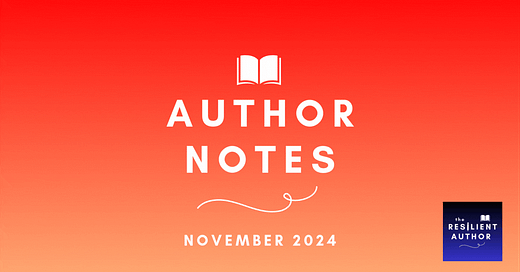Author Notes #14 (November 2024)
Reading lists for MPs, the lessening impact of mainstream media, dystopia on the rise, publishing agreements with AI companies, and a children's reading crisis.
So much has been happening in the industry over the last month I hardly know where to start. But here we go!
1.
A reading list for MPs about the crisis in the Middle East
A group of high-profile Australian authors have put their names behind an initiative to give each of our 227 Australian MPs and Senators five books to read over Christmas, with the aim of…




